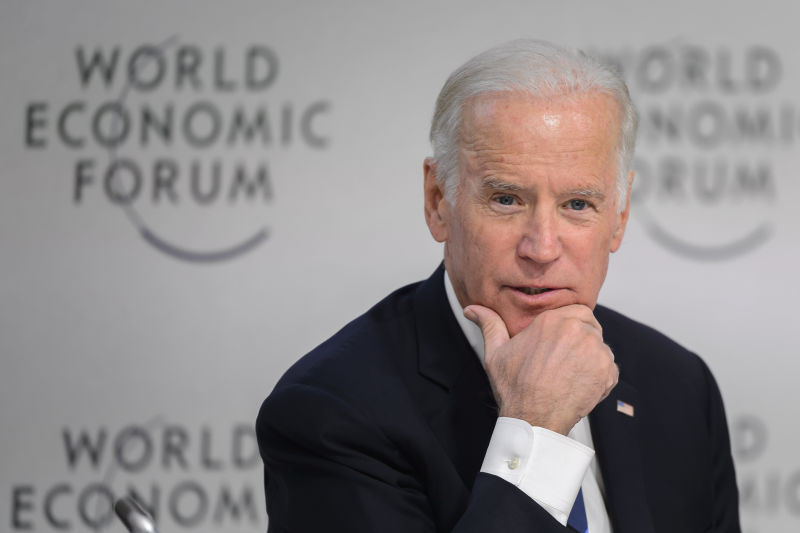Vice President Joe Biden today convened an array of cancer research and treatment experts at the Davos World Economic Forum to discuss advancing the fight against cancer. Watch the video replay below; after Biden's introductory comments, the panelists start weighing in at about 24 minutes:
The special session was moderated by Francis S. Collins, director of the U.S. National Institutes of Health. The panelists were Jennifer Doudna, Sylvia Matthews Burwell, Paula T. Hammond, Elizabeth Blackburn, David B. Agus, Charles Sawyers, José Baselga, Delos M. (Toby) Cosgrove, Bill McDermott.
You can read about today's discussion at the World Economic Discussion website. Topics included: personalized medicine, the role of big data, the difficulty of recruiting patients for clinical trials, and the potential of CRISPR, a gene editing technique that Science magazine called the 2015 breakthrough of the year.
Biden launched the "moonshot" initiative last Friday to hasten a cancer cure, aiming to use his final year in office to break down barriers in the medical world he said are holding back progress on eradicating the dreaded disease.

